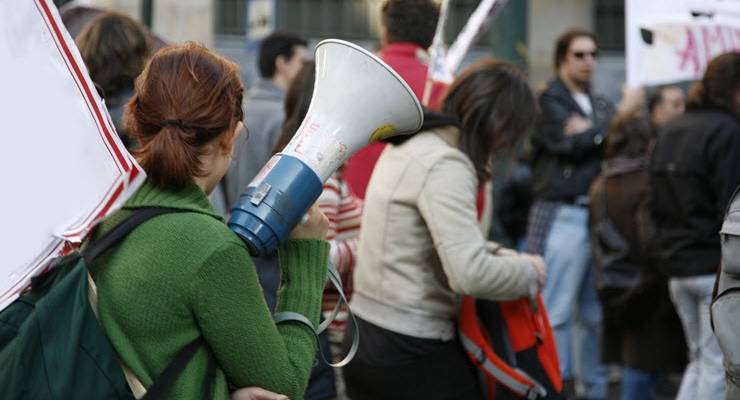
Last week, the student union of Monash University’s Caulfield campus (MONSU) attracted nationwide attention after what looked like an attempt to exclude international students from its upcoming election. The union passed an electoral regulation requiring nominating candidates to be able to work 22 hours per week. This is two hours higher than the maximum weekly hours afforded to international students under student visas.
Condemnation was swift. The National Union of Students issued an emphatic denunciation of MONSU’s actions; they were followed by all three student unions at the University of Sydney. All of the public statements called for a more inclusive student political environment.
MONSU cancelled the election and responded in the days after by arguing that its decision to introduce the 22-hour requirement had nothing to do with international students. It was, they argued, “recognition that being a member of MONSU Caulfield is a considerable weekly commitment”.
Whether you believe MONSU’s statement or not makes little difference — at best, the decision exposed a gross indifference to the conditions imposed on international students; at worst, it was an outright attempt at discrimination.
The considerable media attention given to the events at MONSU might lead some to believe that this is the first time something like this has happened. Outside observers might think that it’s part of the most recent spate of simmering Sinophobia that has infested our national conversation. But the events at MONSU represent nothing new in the arena of student politics.
For years, international students have been subjected to relentless exclusion, exploitation, and blatant racism in Australian universities. At the University of Sydney alone, this history is extensive and ongoing.
In 2010, it was rumoured that right-wing campaigners were intimidating Chinese international students with threats of deportation if they did not vote for Liberal candidates in the undergraduate student representative election. A few years later, in 2016, similar tactics were being applied. During the election of the senate undergraduate fellow, which took place entirely online, a number of candidates took to presenting laptops to Chinese international students studying in libraries and pressuring them to vote on the spot. One student admitted immediately after voting that they had “no idea” what they had just been asked to do.
Exploitation then turned into outright xenophobia only a few months ago when an unsuccessful candidate for the University of Sydney Union called a Chinese international student’s bid for the union presidency “foreign interference”. That student’s Labor-aligned faction went on to secure the presidency.
Bolstering this history of hostility is an equally unfriendly electoral apparatus. In response to the deportation threats of 2010, the university’s students’ representative council enacted a well-intentioned but appallingly ill-considered regulation which prohibited campaigning in any language other than English. This was marginally relaxed in 2017 with the allowance of printed foreign language materials, but still applies to all verbal and online campaigning. This means that the only way for international students to campaign in their native language is through paper flyers and pamphlets — a method that is both an expensive and archaic.
A senior Chinese international student politician told me that they thought the regulation had been “catastrophic” and noted that not only had it limited participation but had stifled debate between international student factions and diminished ideological accountability.
“Even a student like me, who is relatively fluent in English — it takes me significantly longer to read a policy statement in English than in Chinese,” they said. “Most international students can’t be bothered to read a 2000-word manifesto, they just vote for whoever they happen to know personally.”
The problematic history of student politics is all too often overlooked in conversations about the treatment of international students in Australia. Universities like Sydney Uni are frequently (and deservedly) maligned for their reluctance to properly accommodate the international students upon whose fees they increasingly depend. Multilingual student services — including counselling and sexual assault reporting mechanisms — remain inadequate.
It isn’t enough to simply blame universities though. Monash and Sydney Uni are just two examples of campuses in which domestic students have, for some time, stifled and belittled international student participation, and in doing so, diminished the ability of international students to ameliorate their conditions.
In the words of the same anonymous Chinese student politicians, international students are only included to the extent that they can “participate in the debate”.
Are you an international student at an Australian university? We’d love to hear your stories: boss@crikey.com.au.
Joseph Verity is a writer and journalist. His writing also appears in Sydney University’s newspaper Honi Soit.








It seems reasonable that campaign material for any election in Australia be either just English or verbatim bilingual. Foreign language only material is exclusionary and subject to corrupt or manipulative practices.
Apart from that we should instead be doing everything we can to encourage foreign students in as much democracy as possible. A practical lived experience of democracy is one of the best things we can offer many of them.
To leave the student union at the mercy of the whims of Chinese Communist Party operatives, on campus, is certainly naive at the best and willfully blind at worst.
The population of Australia was given a demonstration of their party specific ideology when there were masked assailants attacking pro- Hong Kong demonstrators, on campus.
If the majority of overseas students can not read campaign material in English, then I hold doubt that they should be capable of achieving an adequate proficiency to be able to pass exams.
And so, yes, after the seat of Chisholm, has ended up in the High Court, all campaign material should be only in English, with no flyers in any foreign language.
I dunno, but 22 hours seems like a pretty random number to be purely accidental.